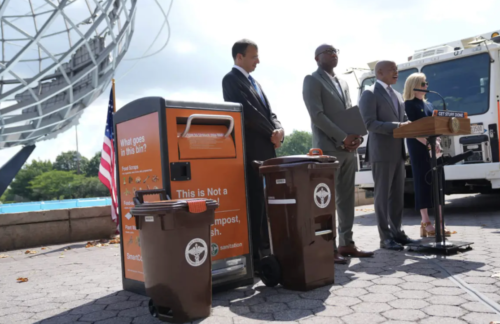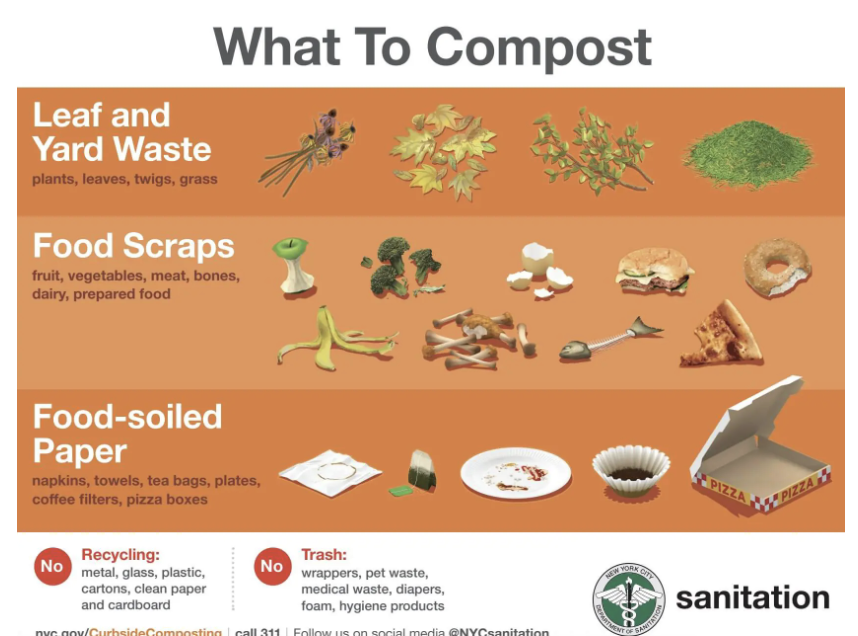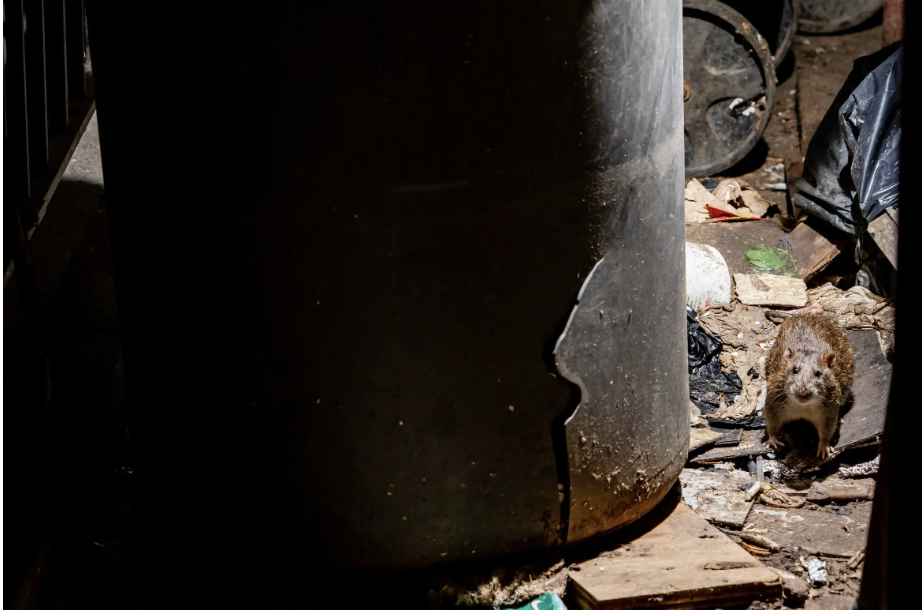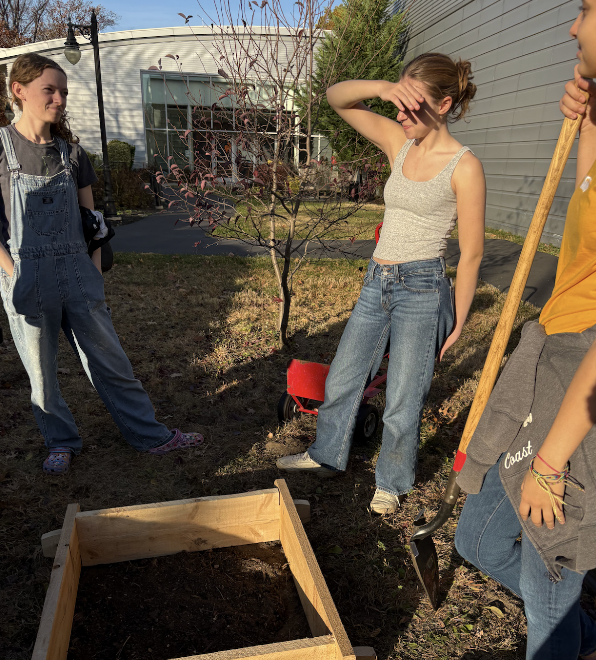New York City is tackling both climate change and its rat problem with a groundbreaking new initiative. NYC Residents must now separate food scraps, food-soiled paper and yard waste from their regular trash. The city aims to redirect waste from landfills, turn compost into renewable energy and eliminate potential food for rats. New York State Assemblymember Jenifer Rajkumar emphasizes the importance of this change, stating, “Diverting organic waste will also deprive the rodent population of food, bringing us closer to victory in the War on Rats. Together, we will forge a path to a sustainable, zero waste, and rat-free future.” The city is giving its residents until the Spring of 2025 to adjust to composing before issuing fines of up to $200.
Under the new rules, households are now required to set leaf and yard waste, food scraps and food-soiled paper in their DSNY Brown compost bin or any labeled bin with 55 gallons or less. You can only mix yard and food waste together if your bin has a secure lid. If you do not have a bin with a secure lid, you cannot mix yard and food waste together. Residents in Manhattan, the Bronx and Staten Island could request a free brown bin up until October 28, 2024. The city will collect compost on the same day as recycling.
Compost Bin Decal (Source: NYC Department of Sanitation)
A key factor for these new stricter composting rules is to reduce the impact that we have on the environment. When organic waste decomposes in landfills, it emits methane gas which is “more than 28 times as potent as carbon dioxide at trapping heat in the atmosphere.” Composting prevents methane emissions from anaerobic decomposition (decomposing without oxygen). With these new policies, NYC hopes to reach its goal of reducing food-based emissions by 2030.
In addition to the environmental benefits, these new composting rules help fight NYC’s ongoing rat problem. Instead of allowing easy access to food in black trash bags, the new rules require citizens to collect food waste in bins, which reduces the availability of food for rats. The city expects to curb the rat population by eliminating their food sources.
Source: The New York Times
Although composting has only recently become mandatory in NYC, Fieldston has participated in composting long before these new rules were introduced. The school practices pre-consumer composting, which involves disposing of food waste before it is served. According to Sophia Nathanson (Form VI), “The kitchen staff are the ones who put the pre-consumer compost in the compost bins in the kitchen, and then student volunteers take the bins to the compost.” This week, students in the gardening club built a cedar-raised bed to expand their garden, filling it with compost collected from the school. Students reflecting on the experience of using the compost shared “It was pretty great! I knew we had been trying to keep compost for quite some time now, and it was really exciting to see this sustainable cycle in action.” said Hannah Saez-Zadoff (Form V).
Source: Zena Imafidon
Through these efforts, Fieldston teaches students about reducing waste and the importance of composting. As New York City moves to a zero-waste future, Fieldston’s composting practice sets an example of how communities can take action to create a more sustainable future for our city.









